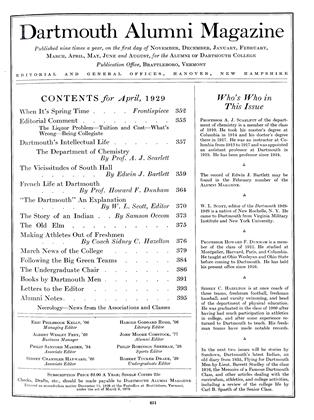by Sidney Cox. New York. Henry Holt.
Many things go to make a great poet, among them, great poetry. Among them also goes the great character legend. Mr. Frost's legend includes, The Good Greek, The Puritan, The Socratic Don, and The Decadent New Englander. Professor Cox has inscribed the scroll, in an elite edition, limited, numbered, and autographed, with an additional avowal. Mr. Frost is also the "Original Ordinary Man."
The book is biography, not criticism; but it is biography of Frost's literary moments. It is Frost interpreted through liberal quotation from his poems. The difficulty is that that is not biography any more than it is criticism. It is an ingenious blend intended to show that Frost is all things to all men. That I cannot accept; particularly in the face of an intense insistence throughout the book on Frost's "unimproved," "unspoiled," "lack of conformity." The assumption that most readers will conform to taste for this poetry is curiously illogical.
The "ordinariness" of Frost is the meat of the book and the cut is well chosen. That ordinariness is the touchstone of taste for Frost. It is communicable to those whose experience has given them meaning for his words and moods. It is not communicable to the group about which it is written because they do not read, or if they do they find no delight in rural rapture or disaster, much less in commonplace. But it is not communicable to sophisticated readers either, unless they have had rural experience. In spite of the obviousness of this truth, critics, teachers, and amateur champions of Frost frequently present themselves from this group and purport to expound Frost. If they succeed they will get him into the text books and literary sets, but they will never get him into anyone's heart. Frost will do that, where it can be done, unassisted; just as he shaped his poetry.
There remains as audience for Frost the limited number of readers who have shared Frost's homely experience and outlook and have acquired some sophistication of taste as he has. Among them the lovers of Frost's poetry are to be found. To them the case for Frost's "ordinariness" is meaningful in Professor Cox's book. To some of the inexperienced it will seem meaningful, as the poetry does; albeit their enthusiasm will have an academic sound. At any rate, they will enjoy possessing the book, because the great legend is making possession of Frost more and more desirable whether one reads him or not.
And Professor Cox's exposition of the essential human being in Frost includes a memorable portrait.
MARCH MUD
 View Full Issue
View Full Issue
More From This Issue
-
 Class Notes
Class NotesCLASS OF 1923
April 1929 By Truman T. Metzel, "Charlie Chadbourne" -
 Article
ArticleThe Vicissitudes of South Hall
April 1929 By Edwin J. Bartlett -
 Lettter from the Editor
Lettter from the EditorEditorial Comment
April 1929 -
 Article
ArticleFrench Life at Dartmouth
April 1929 By Howard F. Dunham -
 Class Notes
Class NotesCLASS OF 1899
April 1929 By Louis P. Benezet -
 Article
Article"The Dartmouth," An Explanation
April 1929 By W. L. Scott, Editor
Books
-
 Books
BooksMovable Bridges: vol 1 Superstructure
August, 1926 -
 Books
BooksUNFINISHED BUSINESS,
August 1944 -
 Books
BooksTHE THREAD OF ARIADNE: THE LABRYINTH OF THE CALENDAR OF MINOS.
DECEMBER 1972 By JOHN B. STEARNS '16 -
 Books
BooksTHE WHITE STRANGER
May 1940 By Kenneth A. Robinson -
 Books
BooksANCIENT GREECE AND THE NEAR EAST.
FEBRUARY 1966 By NORMAN A. DOENGES -
 Books
BooksAMERICAN SHIPS.
FEBRUARY 1972 By STEPHEN G. NICHOLS JR. '58


